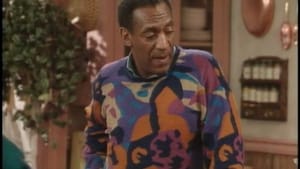Stay in the Loop
BSR publishes on a weekly schedule, with an email newsletter every Wednesday and Thursday morning. There’s no paywall, and subscribing is always free.
The artist and the criminal
Considering Cosby

One of Hitler's paintings recently sold at an auction. The picture accompanying the short article was small, so I couldn't make out the details, but from what I could see, Hitler was quite good. There was nothing creative about his depiction of a house, but he obviously had some skill. I don't remember who bought the piece, which had been passed down to the former owner by a parent, but no editorial comments were made — it was just a painting by a notorious person, and whoever bought it undoubtedly did so for that reason.
Sometimes, people of questionable or even execrable character are, nevertheless, talented. Music students study operas by Richard Wagner, a known anti-Semite. We also learn about Carlo Gesualdo's madrigals — which were way ahead of their time, harmonically — despite strong evidence that the man himself was a murderer. O.J. Simpson may or may not have killed anyone, but there's little doubt that he was an abusive husband.
Roman Polanski is a rapist who fled the country to avoid incarceration and has made excellent films since. Woody Allen has been accused of child molestation (which he has vehemently denied), most recently when he received, in absentia, a Cecil B. DeMille award for lifetime achievement at the Golden Globes earlier this year.
Less worthy of censure, but still unacceptable to most of society, are Pablo Picasso and Martin Luther King Jr., both notorious womanizers. (The list of famous men who were unfaithful to their spouses is, or course, long.)
Which brings us to Bill Cosby, whose alleged rapes seem in line with the way some child stars have been (also allegedly) treated by powerful men in Hollywood, according to a recent documentary about what is supposedly an open secret. You probably won't see that movie any time soon — nobody wants to distribute it. Just as nobody in law enforcement has prosecuted Bill Cosby over the years.
Shame and reluctance
Rape has historically been hard to prosecute, and not just because of the difficulty of sorting out the truth in “he said/she said.” Historically, women have had fewer rights, including sexual rights. Names of rape victims are kept private because being violated by a predator is seen as something to be embarrassed about rather than a reflection on the perpetrator.
And as more and more women make public accusations against Cosby, a few men have also come forward to say that they thought he was guilty but didn't think the case would stand up in court or that they observed questionable behavior but decided not to do anything. This sort of silence happens even with assailants who aren't well-known, but, until recently, tarnishing the reputation of the rich and powerful, especially when they have established such a positive image, was unusual. Which could account for why it took so long for the media to take the allegations against Bill Cosby seriously.
Acting or not?
There's no question about the man's talent. I loved watching The Cosby Show. I'd probably still love watching The Cosby Show if it were on the air in reruns. I admit that I assumed Bill Cosby wasn't really acting much, which was foolish and contrary to my current stance: That just because people are famous doesn't make them anything other than — well, famous. Sports figures are good at sports but shouldn't be role models, except in sports.
Similarly, Bill Cosby was (and probably is) a great comedian whose Emmy-winning role in I Spy was groundbreaking. He also introduced a much-too-large segment of the American public to the existence of the black upper middle class. I suppose he decided that his influence on American culture gave him droit du seigneur, sort of like the men in Lisa Ling's CNN program on sugar daddies who felt that achieving a certain level of wealth entitled them to a lovely young woman on their arm, if they wanted one.
Undeserved privilege
I wish people who break the law could be prosecuted, ideally without regard to their fame. And that we, as a society, could stop worshipping the extremely talented and giving them privileges they don't deserve along with the deserved adulation for their gifts. Michael Jackson's celebrity may or may not have played a role in his acquittal from child molestation charges, but at least he was tried in court. Then again, Bill Cosby was a father figure, the man in those Jello pudding ads, while Michael Jackson was “odd.” But even if Jackson had been convicted, his talent would remain undeniable. It's interesting that he vehemently denied all wrongdoing — which doesn't prove he was innocent, but is in stark contrast to Bill Cosby's attempts to scuttle stories about the rape accusations, speaking only through his lawyer.
Institutions are distancing themselves from Bill Cosby, but members of the public are still attending his stand-up performances — those that haven’t been canceled, that is. Perhaps, like Jill Scott and Whoopi Goldberg, they feel that he is innocent until proven guilty, though I think the sheer number of accusers make his complete innocence seem unlikely.
I suspect that at least some of his defenders don't care one way or the other. They just want to laugh, and even if he's a monster, he remains an expert entertainer. Who should be in jail, if he's guilty.
For Dan Rottenberg's take on the Cosby case, click here.
Sign up for our newsletter
All of the week's new articles, all in one place. Sign up for the free weekly BSR newsletters, and don't miss a conversation.
 Maria Thompson Corley
Maria Thompson Corley